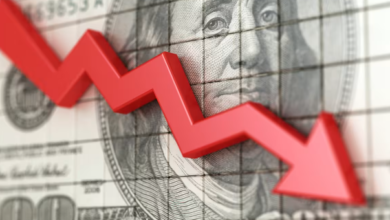
As 2024 approaches, the global economic landscape appears set for a significant slowdown, influenced by a confluence of factors including inflation, high interest rates, and ongoing geopolitical conflicts. This emerging scenario is shaped by the assessments of leading financial institutions and international organizations monitoring economic trends.
A primary catalyst for the expected deceleration is the impact of continued high interest rates, particularly those implemented by the Federal Reserve. These measures, aimed at controlling inflation, have resulted in more expensive borrowing costs for both consumers and businesses. As a result, inflation, which reached a four-decade peak in 2022, is expected to slow down, with U.S. inflation forecasted to drop from 3.9% in 2023 to 2.8% in 2024, and further to 2.2% in 2025, aligning closely with the Fed’s 2% target.
The global economy’s growth rate is anticipated to slow to 2.7% in 2024, down from an expected 2.9% in 2023, marking the slowest calendar-year growth since the pandemic-impacted year of 2020. Contributing factors to this slowdown include the deceleration of the world’s two largest economies, the United States and China. The U.S. economy is expected to grow only 1.5% in 2024, compared to 2.4% in 2023, while China’s growth is forecasted at 4.7%, down from 5.2% this year. China’s economic challenges stem from its real estate crisis, rising unemployment, and slowing exports, along with subdued consumer spending.
Furthermore, the economies of the 20 countries in the European Union that share the euro currency are also likely to contribute to the global slowdown. These economies are grappling with heightened interest rates and a surge in energy prices following Russia’s invasion of Ukraine. The collective growth of the eurozone is expected to be a modest 0.9% in 2024, an improvement over the predicted 0.6% growth in 2023.
Despite these challenges, most economists predict the global economy will avoid a full-blown recession. However, they do flag the possibility of “mild recessions” in Europe and the United Kingdom. For the United States, a “soft landing” is still considered achievable, although uncertainties remain, particularly regarding the Federal Reserve’s future monetary policy decisions. China’s economic outlook is also clouded as companies seek alternative, cost-efficient production locations.
The combined effects of inflation, interest rate hikes, and geopolitical uncertainties are creating a complex environment for global economic activity in 2024. While a severe recession might be averted, the world economy is undoubtedly gearing up for a period of slower growth, demanding strategic responses from both policymakers and businesses alike.





